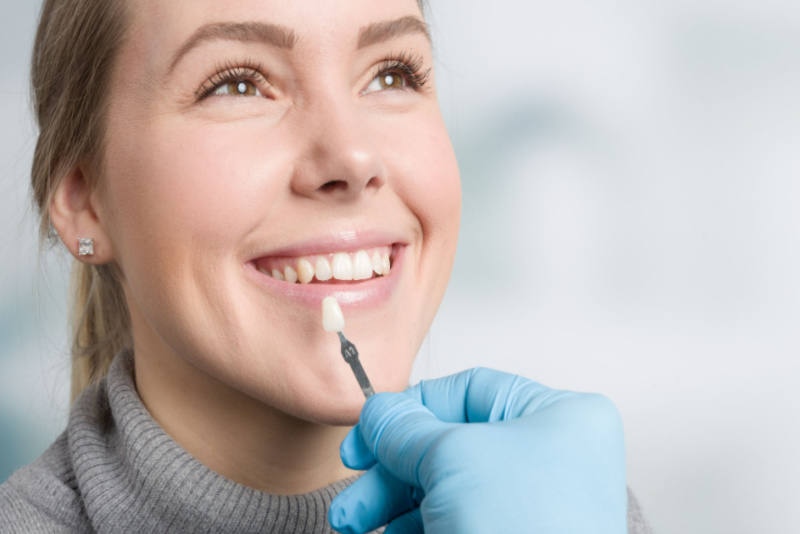Insightful and informative dentist blog, covering a wide range of dental topics alongside new treatment & clinic announcements.

How long do veneers last?
We are often contacted about veneers, which are one of our most popular treatments. Veneers offer great solutions for people who would like to improve the cosmetic appearance of their teeth or create a ‘celebrity smile’. They are bespoke moulded to fit your teeth and will give you an even, whiter smile. We offer two treatments – porcelain veneers and no-prep veneers.
How long do porcelain veneers last?
A porcelain veneer is a thin, translucent layer that is moulded and fitted to the underlying tooth in order to cover minor imperfections and create a beautiful smile. If you look after your porcelain veneers, they will last for 10-15 years – although some people report their veneers have lasted for 20 years. If you would like porcelain veneers, you need to be aware that they are an irreversible solution because the surface of your natural tooth has to be thinned and reshaped as part of the process. Therefore, if you damage porcelain veneers, or when they wear out, you will have to replace them.
How long do no-prep veneers last?
No-prep veneers, which are also called composite resin veneers, are made out of porcelain or composite materials. As their name suggests, no preparation work needs to be done on the tooth surface, making them a less invasive option than porcelain veneers. With no tooth reshaping or thinning, no-prep veneers by necessity need to be thinner than porcelain veneers. As they are such a thin layer, they are less robust, though no-prep veneers will still last at least 5-7 years. With no preparation work done on the tooth itself, no-prep veneers can be removed and do not have to be replaced.
How to ensure your dental veneers last as long as possible
The best way to make sure your veneers last as long as possible and improve the expected lifespan, is to look after your teeth. Brush your teeth twice a day (using non abrasive toothpaste), floss regularly, and visit your dentist for regular check-ups. Without proper care It is possible for bacteria to build up around the edge of your veneer, which can get underneath the veneer and cause tooth decay, so good oral hygiene is essential.
Prevent damage to natural teeth & Veneers
Even with the best will in the world, accidents happen. The most common reason to replace veneers or dental crowns is because of accidental damage – usually caused by people banging their teeth with a glass or mug. If this does happen, the veneer will need to be completely replaced.
There are other reasons why you might end up back in the dentist’s chair. If you have a problem with teeth grinding your teeth or clenching, you may need to wear a nightguard to prevent damage to your veneers, as well as your teeth. If you play sports, it may be a good idea to wear a mouthguard to protect your veneers against grinding, chips or cracking. Avoid biting on hard surfaces such as nuts and boiled sweets, and finally, don’t be tempted to use your teeth to try to rip open parcels or loosen knots as this could damage your natural teeth as well as your veneers in the process.
Book a free consultation
Contact us if you would like to book a free 30-minute consultation at our central London clinic. We are based in the Harley Street area of Marylebone, and our experienced and skilled cosmetic dentists have fitted veneers for hundreds of patients wanting a new smile.
We offer payment plan options and 0% private dental finance. Ask us about our financing options during your consultation.